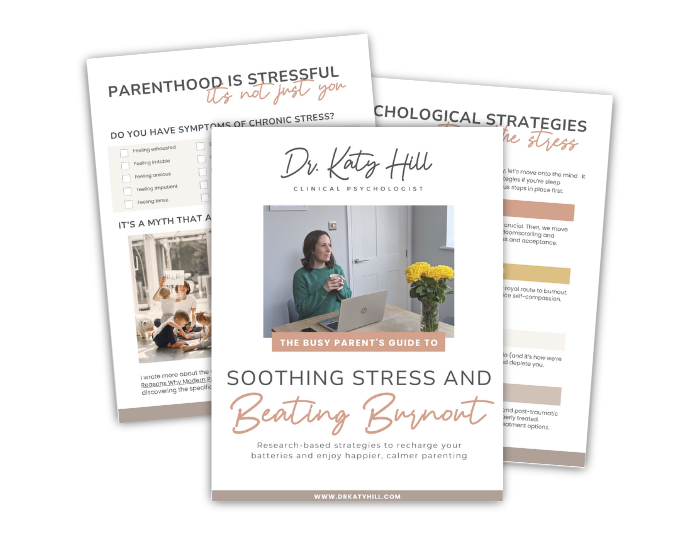If you’ve ever shouted at your child and immediately wished you could take it back, you’re not alone.
And if that moment left you swimming in guilt – replaying the words, wondering if you’ve done lasting damage, feeling ashamed of the parent you’ve just been – please know that I hear this all the time in my work. And I do this work because I’ve been that parent myself.
I work with parents who are thoughtful, sensitive, and deeply invested in their relationships with their children. They often hold themselves to incredibly high standards. And when they lose their temper – whether that’s shouting, snapping, or simply withdrawing – it cuts deep.
Not just because they regret the outburst itself, but because they’re afraid of what it says about them. What other people might think about their parenting. What damage it might’ve caused their child.
In this blog, I want to explore what’s going on underneath these moments and how you can respond with more compassion and clarity, even if the guilt still feels raw.
why the guilt feels so big
When we lose our temper with our children, the guilt can feel overwhelming. Especially for parents who have worked hard to be emotionally present and conscious in their parenting, that moment of shouting or slamming a door can feel like a total betrayal of your intentions.
It’s not just the guilt about what you said or did. It’s what that moment seems to say about you: I’m not who I thought I was. I’ve failed. I’ve ruined something.
For many of the parents I support, this guilt is wrapped up in:
- High levels of self-awareness and empathy
- A desire to break intergenerational patterns
- Deep hopes about the kind of parent they want to be
And while guilt can sometimes be helpful (it can alert us to misalignment with our values) it can also turn quickly into something more corrosive.
Shame.
Where guilt says “I did something I regret,” shame says “I am bad.” And when you land in shame, it’s harder to reflect, repair, or move forward.
what's happening in those heated moments
Anger often feels like it comes out of nowhere. One minute you’re managing, and the next something snaps. It might be the tenth time you’ve asked them to put on their shoes. Or the way they’re whining while you’re trying to make dinner. Or simply that your brain is holding too many tabs open, and your body is just done.
You might find yourself shouting, slamming a cupboard, saying something that feels too harsh or too loud. It can feel powerful, energising, cathartic.
And then – when it’s over – comes the crash. The moment where your child looks at you differently. Or bursts into tears. Or goes quiet. And you’re left feeling sick with guilt.
If that’s you – and it’s not just you, we’ve all been there – I want you to know that this doesn’t mean you’re not coping. It means your nervous system is in survival mode. It means you’re probably doing too much, with too little support, for too long.
These aren’t signs of personal failure. They’re signs that your system is overwhelmed.

The Parental Burnout Quiz
Curious what your own parental burnout score is? Download the free assessment and get your score – plus expert tips on how to reduce it.
what might help in that moment (and after)
Here are some gentle ideas for what to do after you’ve lost your temper with your child. None of these are about ’fixing it’ perfectly. They’re about softening the experience so you can begin to move forward, instead of staying stuck in shame. Because your shame isn’t helping you or your child.
1. Soothe yourself first
Before anything else, take a moment to acknowledge how you’re feeling.
Your system might still be flooded with adrenaline or guilt. If it feels safe to do so, step into another room. Breathe. Place your hand on your chest or belly.
Something simple like:
“That was a hard moment. I’m allowed to feel overwhelmed.”
You don’t have to launch straight into repair. You get to take care of you, too.
2. Notice the story your mind is telling
After you’ve lost your cool, it’s very common for your inner critic to kick in:
“You’ve ruined everything. Your child will remember this forever. What’s wrong with you?”
It can help to pause and notice that spiral. Not to shut it down, but to gently step back from it.
What would you say to a friend in your shoes? Could you offer yourself some of that same understanding?
3. Repair (when you’re ready)
You can’t co-regulate when you’re still dysregulated. When things feel calmer, you can gently reconnect with your child. Repair doesn’t need to be dramatic, grovelling or perfectly scripted. It might simply sound like:
- “I’m sorry I shouted earlier. That must have felt a bit scary.”
- “I was feeling overwhelmed and I didn’t handle it how I wanted to.”
This simple act of repair shows your child that relationships can have ruptures and that repair is part of love, not a sign of failure. Don’t believe me? Check out this great book by Ed Tronick and Claudia Gold about how conflict is normal and healthy and actually builds stronger relationships.
4. Reflect with compassion, not criticism
When you feel able, take a few moments to reflect on what was going on for you. Was it a particularly stressful day? Were you running on very little rest? Were you feeling unsupported, or touched out, or overstimulated?
This kind of gentle reflection can be more helpful than dissecting the moment itself. Because often, it’s not about what your child did. It’s about everything you were carrying underneath.
What if you want to stop this cycle from repeating?
Many parents find themselves stuck in a painful loop:
- They snap
- They feel awful
- They overcorrect – being extra soft, over-apologising, trying to be perfect
- They hold in every big feeling
- And then, eventually, it bubbles up again
Therapy can help break that cycle.
Not by teaching you how to ‘never shout again’ or become a perfect parent but by helping you:
- Understand the deeper pressures and expectations you’re carrying
- Learn how to regulate your emotions before they overflow
- Challenge the critical voice that fuels your shame
- Create space for your own needs, boundaries and emotional health
You don’t have to keep parenting on the edge of parental burnout. And you don’t have to white-knuckle your way through it, either.
you're not a bad parent, you're a human one
If you’re sitting with guilt right now and there’s a moment you keep replaying in your head; I want you to know that you’re not alone.
Many parents, especially those who care deeply and try their hardest, experience these moments. You’re not a bad parent. You’re likely exhausted and doing your best with limited capacity.
Guilt can be a sign of how much you care. It can also be an invitation to slow down, reflect, and maybe – if you’re ready – reach for support.
a gentle next step
If you recognise yourself in this blog, and you’d like to talk to someone who gets it -someone who understands both the clinical side of parenting stress and the emotional reality of being a parent who sometimes shouts and regrets it – I’d love to hear from you.
I offer a free, no-pressure intro call so we can talk about what working together might look like. You can book that here.








